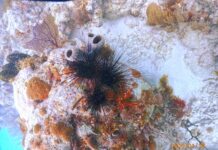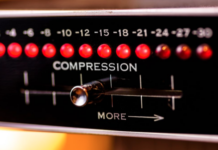Certainly, life on this little spot of land in the middle of the ocean has its share of warm delights — plentiful sunshine, year-round summer and fresh, salt air.
But those celebrated qualities, while good for the soul, can wreak havoc on our musical equipment. There’s the sudden, monsoon-style rainstorm that appears out of a clear blue sky during an outdoor gig for which you brought your best gear. This leaves you and your bandmates scurrying for someplace where the wind doesn’t force the rain directly into the speakers before you can cover them with the garbage bags you can hopefully find in the kitchen. Meanwhile the puddle forming around your pedal board causes you to wonder if you can get electrocuted from a wireless guitar system.
One of the most destructive environmental factors when it comes to musical gear here on the island afflicts us constantly. No matter how much we try to move it, cool it or filter it, it destroys the inner workings of electronics and metal at a robust pace. I am talking about the salt in our air, which forms what is called colloidal suspension. It’s like fine dust that does not dissolve into the air. Combined with moisture, these salt particles lead to the pitting of metals and corrosion and, obviously, rust. Pitted chrome decorates the hardware on many a drum set on our fair island. And nearly every guitar will have a rusty screw or two if the player has not replaced the hardware with stainless steel, which somehow still seems to rust.
Not only does it pit the metal on the outside of an electric guitar, but the wiring inside begins to corrode. It becomes noisy, cuts out and makes the instrument generally unreliable. Guitar effect pedals are among the most easily affected, given the combination of electronics and moving parts. Salt air can spell disaster if proper maintenance is not applied. When it comes to acoustic guitars, let’s just say the combination of wood and metal we love so much does not stand a chance.
Another culprit in the demise of guitar pedals is coral dust. Since pedals are normally on the ground and operated by a person’s feet, one might draw the logical conclusion that pedals get dirty. The dust gets caught around the inside of plastic knob coverings and grinds its way into the plastic as these knobs often get adjusted, causing them to loosen and sometimes crack. The dust also gains entry to the input and output jacks, creating a barrier between the metal of the jack and the metal of the guitar cord, potentially wreaking sonic havoc.
Take this combination, add in some wind, some late nights, some spilled drinks, and bake it all in the Florida sun, and you get the inevitable deterioration of all the tools and gear we need to do what we need — and love — to do.
























